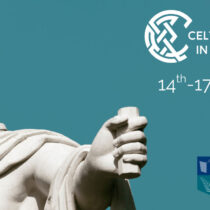The history of mankind is imbued by the concept of time and the way in which the community is managing it. Talking about human civilization, we refer to and search for the representations indicative of the time relation to the social organization of a specific community of population. Furthermore, by discussing time we gain the advantage of understanding the relation of rituals to cultural attitudes as it is revealed in social forms. Time obtains countable characteristics and is adjusted to specific forms of social organization.The imprint of time on the economic and social attitude of the cattle-breeder Greek nomads, especially the Vlach-speeking and Sarakatsanoi, is investigated in this article. Time in these segments of population is introduced as a parameter of their productive activity. The cattle-breeding procedure, as well as its particulars (mating, litter, shearing), defines the way in which these nomads are experiencing time. In this case the present each time represents a firm framework, necessary for the survival of the cattle-breeders’ household. In addition, the cattle-breeding activity has dictated the regular transfer from the mountains to the plains and vise versa, a fact that has immediately affected many aspects of the cultural and social activities of the Greek nomads, as well as their ideological relation to the duality mountain/plain.
Time in the Oral Tradition of Greek and Other Balkan Peoples
23 Aug 2012
by Archaeology Newsroom
- A
- A
- A

